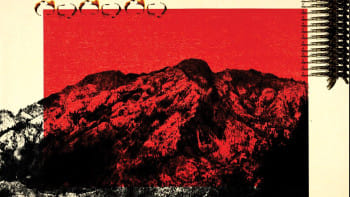The twisted ‘facts’ of CHT Accord implementation

The 23rd session of the United Nations Permanent Forum on Indigenous Issues (UNPFII) began on April 15 and continued till April 26. The government delegation participated in it, as did the Indigenous representatives of the country. Md Moshiur Rahman, secretary of the Ministry of Chittagong Hill Tracts (CHT) Affairs (MOCHTA), gave a speech before the UNPFII on behalf of the government delegation. There was nothing new in his statement. As of last year, 65 of the 72 clauses of the CHT Accord have been implemented, he said. And just like in previous years, he reiterated his promise that the Rules of the CHT Land Commission will be finalised soon. In fact, even though two-thirds of the clauses of the CHT Accord, especially the core issues, remain unimplemented, the government has continuously been propagating statements that 65 of the 72 clauses of the Accord have been implemented.
According to government information, all clauses of Part A of the Accord have been implemented. If so, then why have legal and administrative steps not been taken to preserve the tribal area status of CHT, as per Section 1 of this part? Why are outsiders infiltrating the CHT, unabated, to undermine the tribal area status? Why are non-permanent residents being given permanent resident certificates, jobs, and other facilities based on that certificate? Not only this, they are also being included in the voter list of three hill districts in violation of the provisions in the Accord.
It is true that the CHT Accord Implementation and Monitoring Committee has been formed as per Section 3 of Part A, but this committee still does not have its own office, manpower, and funds. Furthermore, none of the decisions taken in the meeting of the committee were implemented. For example, a decision was taken at the committee's 2010 to cancel the jurisdiction of issuing permanent resident certificates of hill districts vested on the deputy commissioner in violation of the CHT Accord, but this decision was not implemented.
Besides, in several meetings of the Accord implementation committee, the decisions were made to transfer the subject of "Police (Local)" and "Preservation and Development of Law and Order" to the three Hill District Councils and to form a "hill district police force," but they have not been implemented.
If all the clauses of Part A of the Accord have indeed been implemented, why have the other laws applicable in CHT—including the Police Act, 1861; Police Regulations; Forest Act, 1927; and Chittagong Hill-tracts Regulation, 1900—not been amended to give effect to the said provision of the Accord as per Section 2?
The government also claims that 32 of the 35 clauses of Part B of the Accord have been implemented. If so, why have law and order, police, land and land management, forest and environment, tourism, and development of communication systems not been transferred to the Hill District Councils (HDCs)?
In addition, despite Section 9 of Part B, the voter list has not been prepared including permanent residents of the hill district and the election of three HDCs has not been held. The question to the government delegation is: why, even after 26 years, have the election rules and electoral rules for the HDCs not been formulated?
According to the government, all 14 clauses of Part C related to the CHT Regional Council (CHTRC) have been implemented. So why was the power and responsibility to supervise and coordinate the general administration, law and order, and development of the three hill districts not transferred to the CHTRC, as per Section 9(c)?
Needless to say, the deputy commissioner and superintendent of police continue to unilaterally exercise general administration and law and order powers in the districts, bypassing the coordination and supervision jurisdiction of the CHTRC. In addition, the CHT Development Board and the three HDCs are unilaterally implementing their development programmes, ignoring the power and jurisdiction of the CHTRC.
Meanwhile, the CHT ministry secretary communicated a questionable statement to the UNPFII that the development plan of the CHT region is being implemented in consultation with the regional council. But the CHTRC has always been kept away from development activities in the hill areas. Bypassing the CHTRC and even keeping the three HDCs in the dark, the government is constructing border roads and various connecting roads, destroying plantations and houses of Jumma people, and evicting Jumma people from their villages without compensating affected families.
Furthermore, the government is not following the provision of making laws for the CHT in consultation with the CHTRC, stipulated in Section 13. In fact, even when the CHTRC's advice is sought by the government, it is ultimately ignored, as was seen during the formulation of the CHT Development Board Act, 2014 and the amendment to the three HDC acts in 2014.
The government also claims that 15 of the 19 clauses in Part D of the Accord have been fully implemented, two have been partially implemented, and two are in progress. If so, then, according to Articles 1 and 2, why has it not been possible to rehabilitate even a single one of the 83,000 internally displaced families? And why did the 9,000 India-returnee refugees not get their land back? Why were landless Jumma families not given two acres of land settlement, as stipulated in Article 3?
While it is true that the CHT Land Dispute Resolution Commission has been formed under Sections 4, 5, and 6, not a single land dispute has been settled in the last 26 years. The government has kept pending the work of formulating the rules of the Land Commission for the last seven years. As land disputes are not settled, the Indigenous Jumma people are continuously losing their land.
In his speech before the UNPFII, the secretary of the CHT ministry mentioned that "efforts to conduct digital land survey and management" have been taken in the CHT. But there is a provision in the CHT Accord that the land survey can be carried out only after the resolution of the land disputes. Since the land disputes have not been settled yet, if the land survey initiative is taken before such settlement, it will be a direct violation of the Accord.
Despite the provisions in Section 7, bank loans of 879 returnee Jumma refugees have not yet been exempted. For one instance, a loan of Tk 22,000 taken out by four members of the Parbatya Chattagram Jana Samhati Samiti (PCJSS) has not been exempted in the last 26 years.
Land leases given to non-locals have not yet been cancelled, despite the provisions in Section 8. As a result, Jumma people are constantly being uprooted from their homesteads in the name of the army's tourism and camp expansion mission as well as due to forcible land grabbing by leasing companies and settlers.
The secretary of the CHT ministry claimed that 241 temporary camps have been withdrawn. But according to the PCJSS, out of 545 camps, 66 camps (in two phases of 31 and 35) were withdrawn soon after the Accord (between 1997 and 2001) came about and another 35 camps were withdrawn in 2009 after the assumption of state power. That makes for a total of 101 temporary camps being withdrawn, and more than 400 camps still being active in the CHT. Moreover, new camps are being set up. And due to de facto military rule, called Operation Uttoron, being issued in 2001, the demilitarisation of the CHT is still far away.
The government seems to have adopted a policy of solving the CHT problem using massive militarisation and repression instead of a political and peaceful solution through the implementation of the CHT Accord. This is further complicating the CHT problem.
The secretary of MOCHTA tried to legitimise the militarisation of CHT by citing "different security threats from the occasional influx of forcibly displaced people from neighbouring Myanmar and intrusion of the active Armed Group across the border." However, the prevalent allegation is that state forces have been allowing the creation of armed terrorist groups based on the colonial policy of "divide and rule" and to legitimise the presence of the army in the hills.
According to verbal agreement, the settlers were supposed to have an honourable rehabilitation outside the CHT. There was a promise to stop providing rations to the settlers and dismantle the cluster villages. But that promise was not kept. Hence, in the post-Accord period, there have been more than 20 communal attacks on the Jumma people by the settlers allegedly with the help of administration and state forces.
The claim by the secretary of CHT affairs ministry that there is a five percent quota in "certain public services" for Indigenous people is also not entirely correct. There is a five percent quota for Class 3 and Class 4 employees, but the quota for Class 1 and Class 2 officers was cancelled in 2018. Furthermore, the quota is not properly followed in the recruitment of Class 3 and 4 employees.
In addition to the five percent quota for tribal people in government jobs across the country, there are special provisions in the CHT Accord for recruitment to jobs within the CHT. Section 18 in Part D of the Accord provides for the appointment of permanent residents of CHT, with priority given to Jumma people, in all jobs within the CHT. But this provision, too, continues to be violated by those in power.
The CHT issue is a political and national issue. Therefore, there is no alternative to solving it through political means. After all, wasn't one of the objectives of signing the CHT Accord in 1997 to resolve the CHT problem through political and peaceful means?
Mangal Kumar Chakma is information and publicity secretary at Parbatya Chattagram Jana Samhati Samiti (PCJSS).
Views expressed in this article are the author's own.
Follow The Daily Star Opinion on Facebook for the latest opinions, commentaries and analyses by experts and professionals. To contribute your article or letter to The Daily Star Opinion, see our guidelines for submission.

 For all latest news, follow The Daily Star's Google News channel.
For all latest news, follow The Daily Star's Google News channel. 







Comments